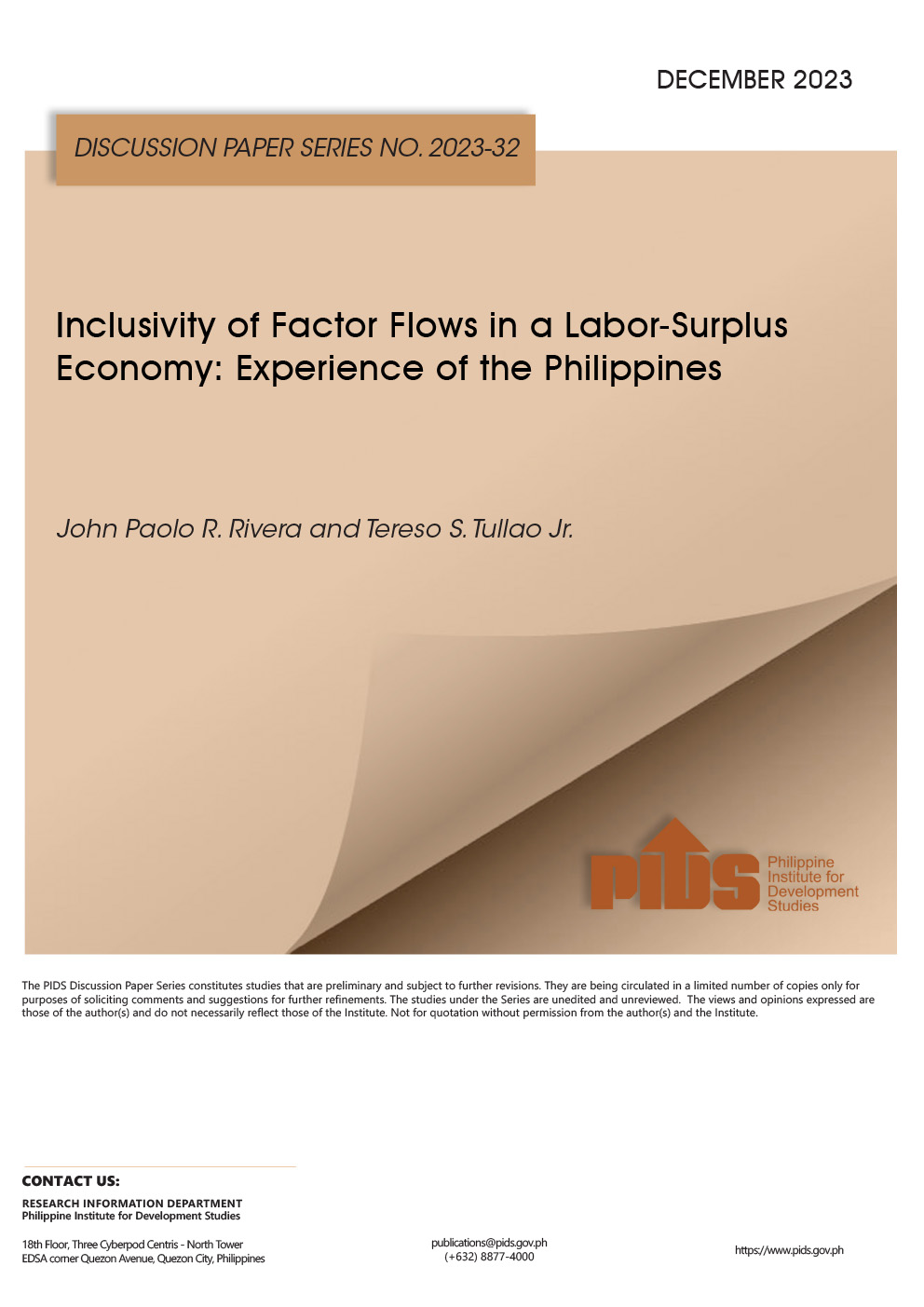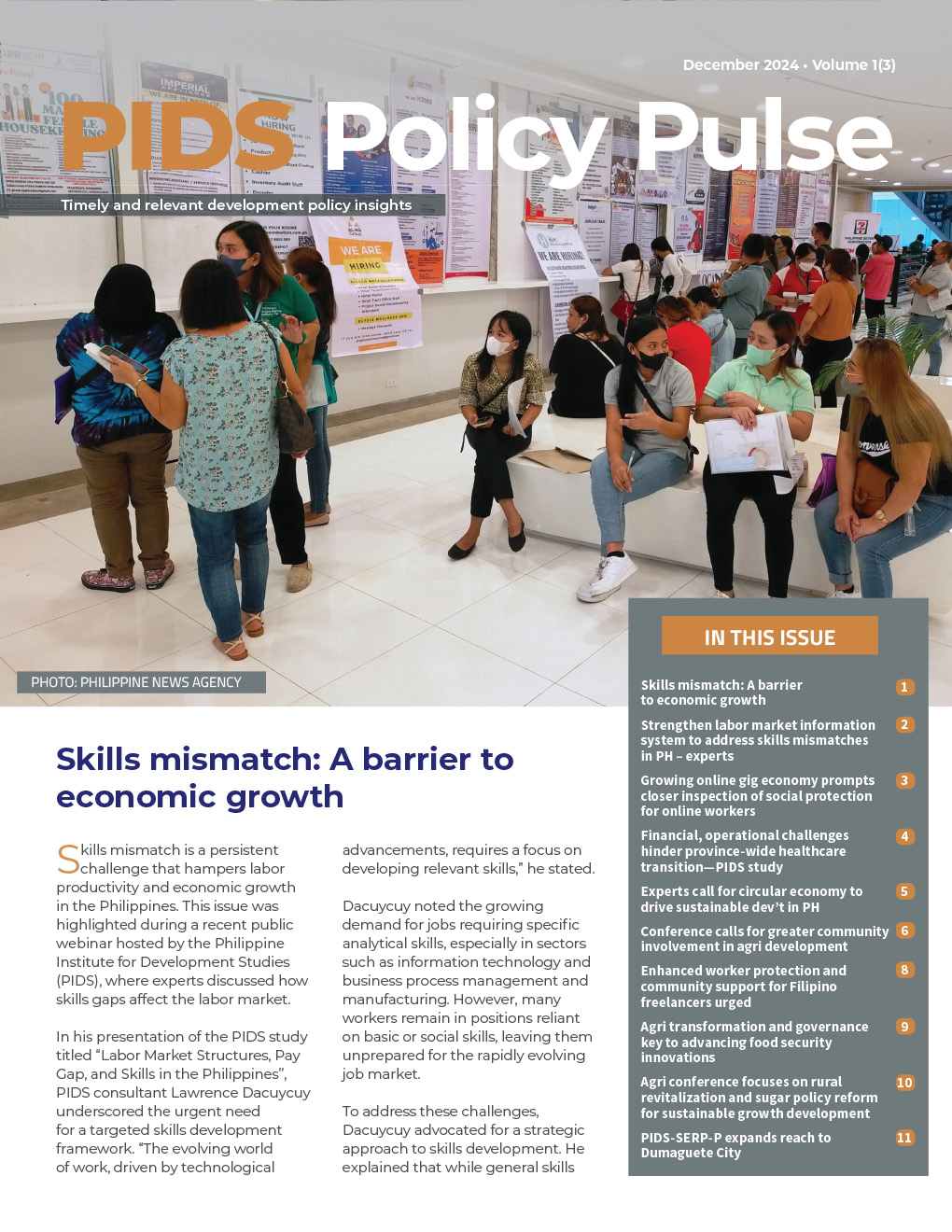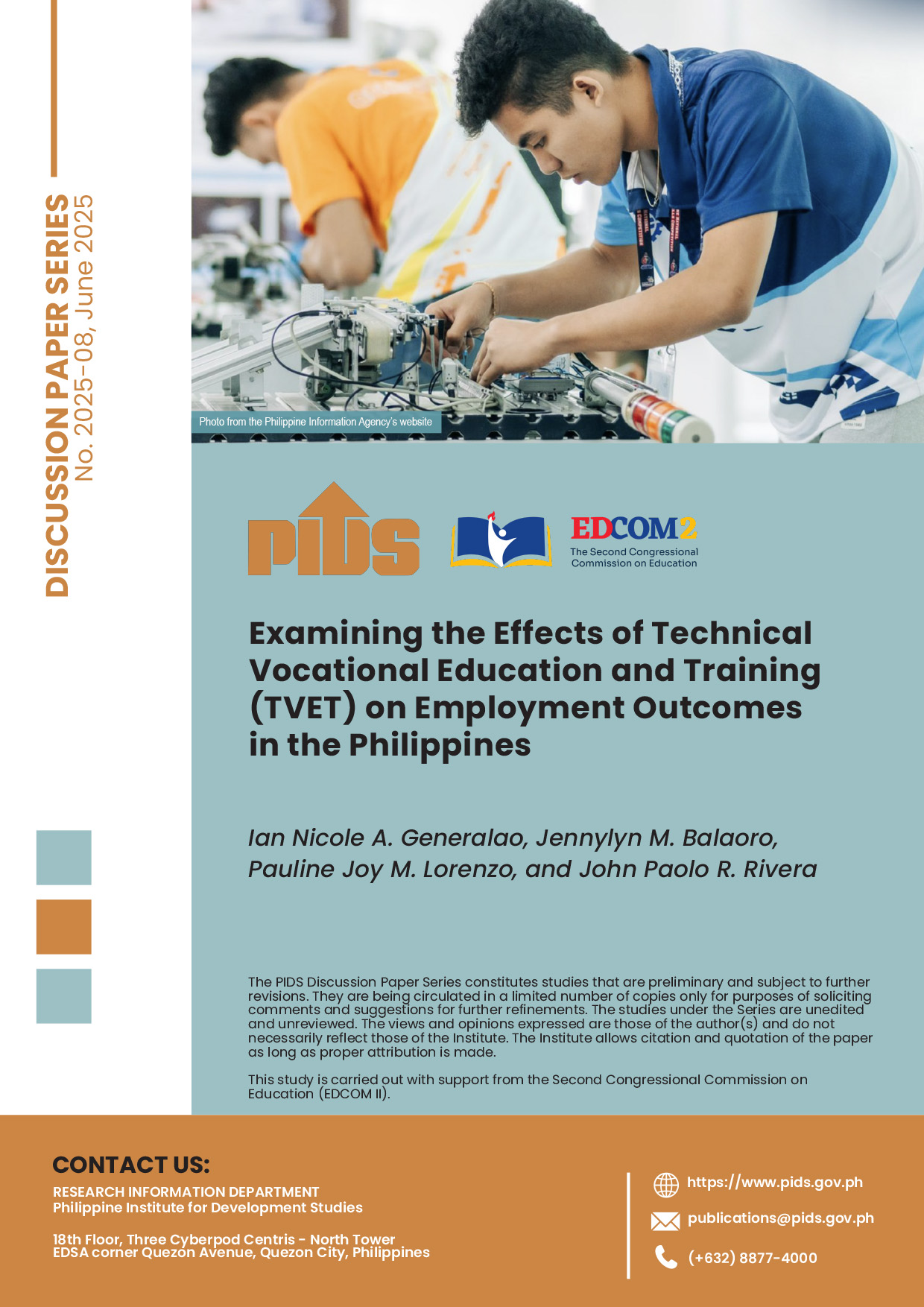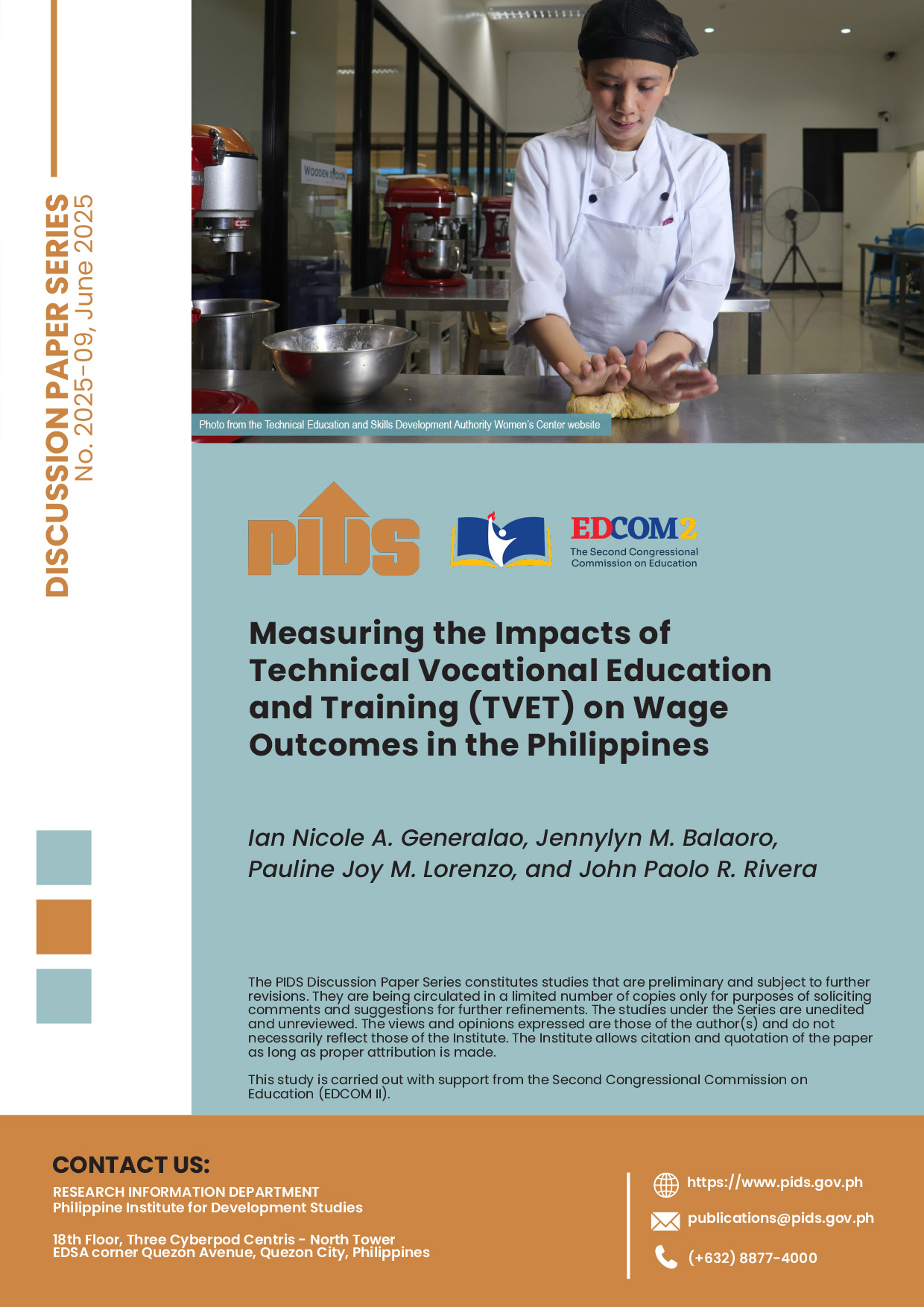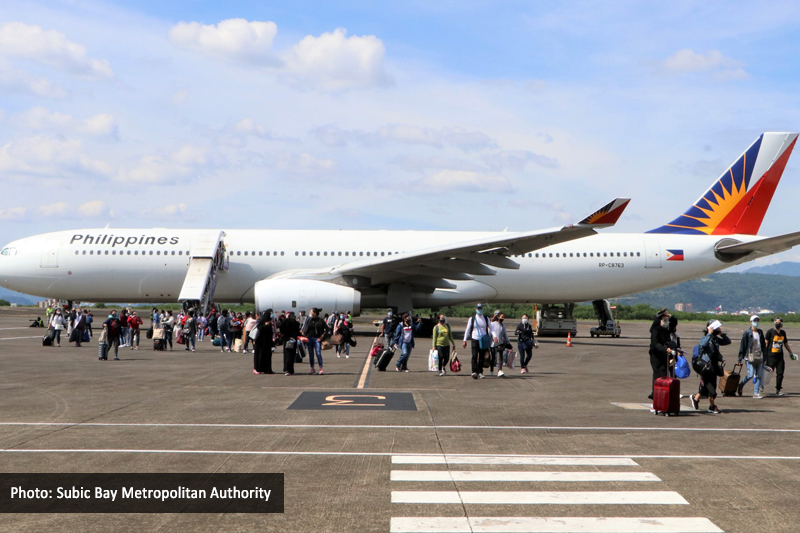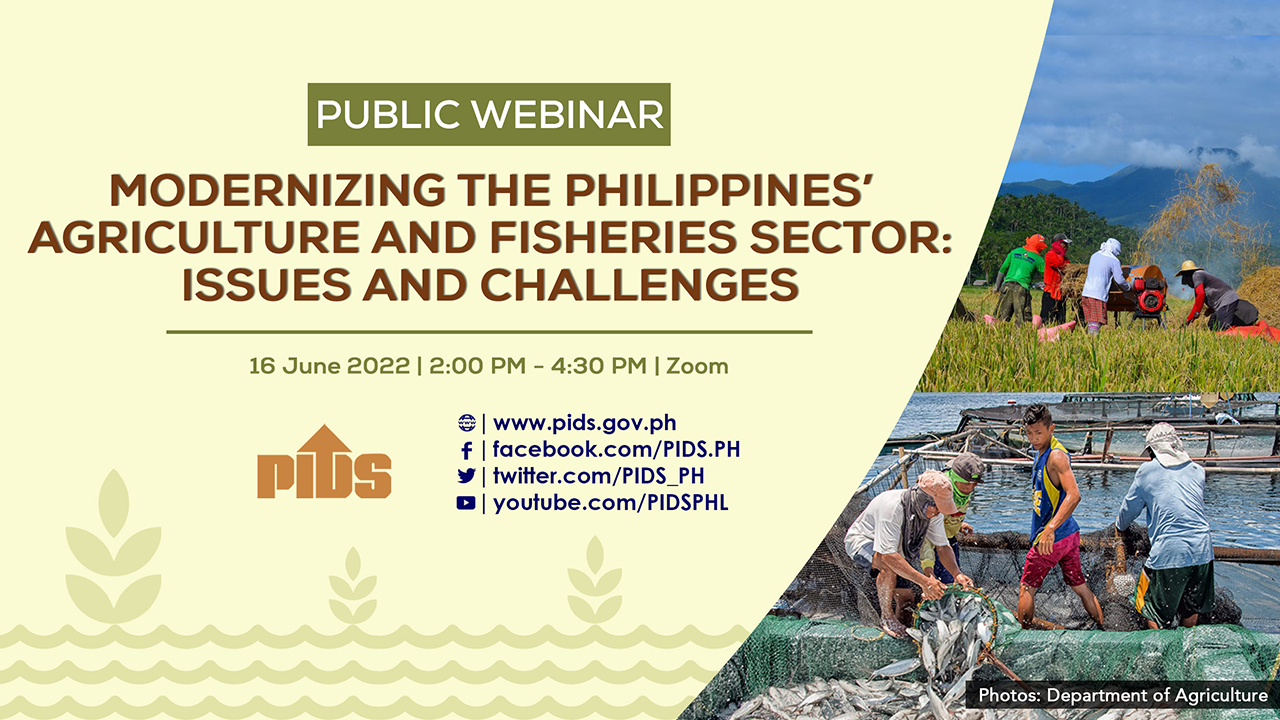Under the assumption of full employment, this study probed the impact of labor emigration on wages, employment, and production in the capital- and labor-intensive sectors of the Philippines, represented by manufacturing and agriculture, respectively. It investigated whether deployment, remittances, and foreign direct investment (FDI) flows are inclusive, given the consequential employment opportunities for unemployed resources left behind, specifically unskilled workers that are biased towards the employment of labor and the production of labor-intensive goods. Subjecting Philippine data from 1991 to 2021 to Vector Autoregression (VAR), the authors generated Orthogonal Impulse-Response Function (IRF) and Forecast Error Variance Decomposition (FEVD) to capture the response of wages, employment, and production in the capital- and labor-intensive sectors on impulses emanating from deployment, remittances, and FDI flows. Empirical results revealed the following key findings: (1) deployment, remittances, and FDI flows are not inclusive because they worsen the situation in the agricultural sector; (2) although deployment and FDI flows increase employment in the manufacturing sector, production does not increase due to limited capital inputs; (3) the capital-intensive sector benefits more from FDI flows than the labor-intensive sector. Despite such results, both sectors have potential inclusivity, provided critical constraints in the labor-sending economy are addressed. This study explains how development strategies that rely on labor emigration and FDI can be recalibrated and made sufficient to achieve inclusive growth. It also augmented literature on the impacts of labor emigration on the sending economy, particularly the Philippines.
Comments to this paper are welcome within 60 days from the date of posting. Email publications@pids.gov.ph.
Citations
This publication has been cited 1 time
- Angelo, Francis Allan. 2025. PIDS Study: PH labor emigration, FDIs Benefit Manufacturing, Hurt Agriculture. DailyGuardian.

